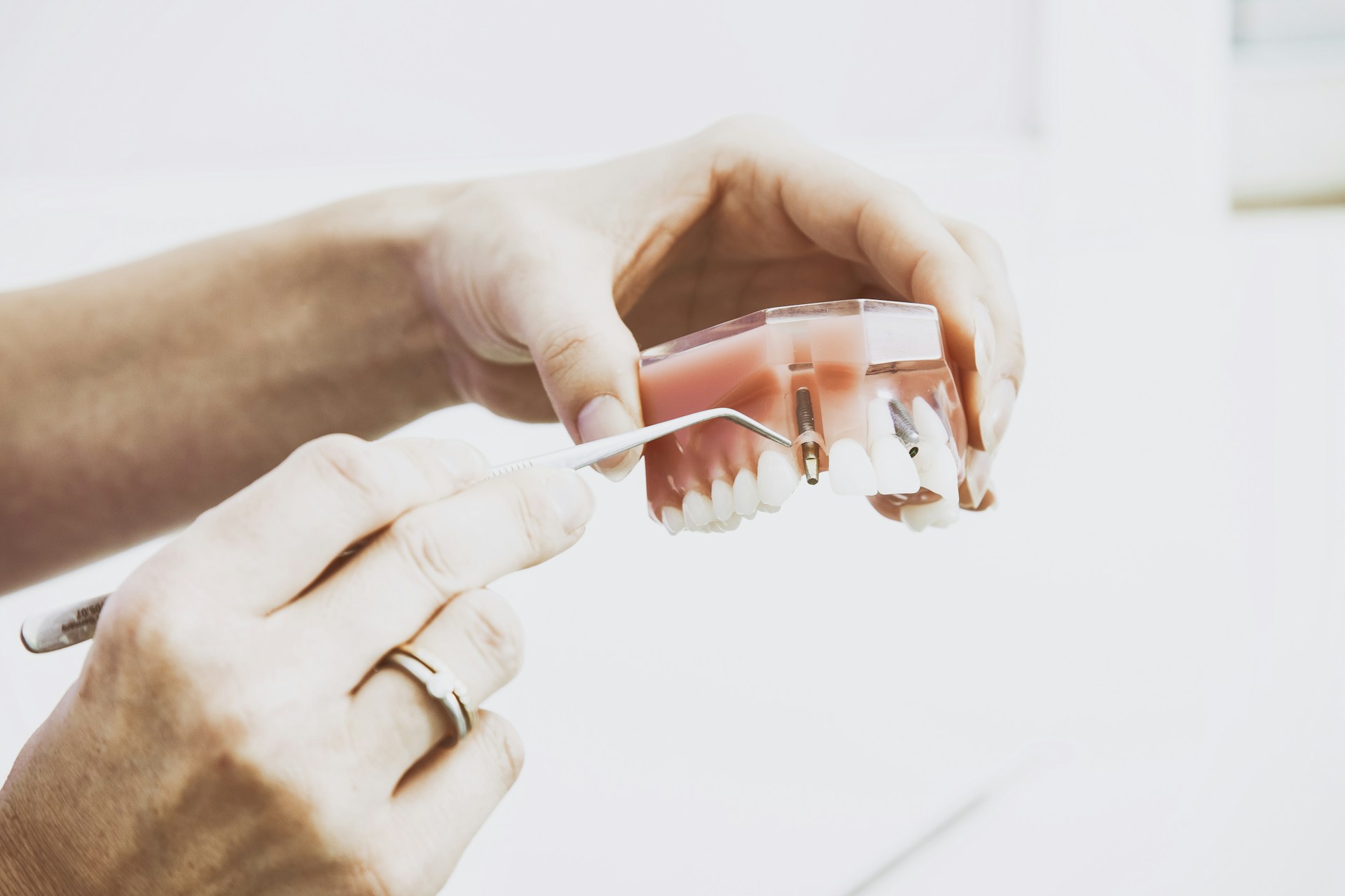SMILE- It costs nothing !!!
Effective Treatment Options for Sensitive Teeth and Worn Enamel
Alleviate discomfort and restore tooth health with desensitizing toothpaste, dental sealants, and professional in-office therapies. Learn more about the causes of sensitive teeth and worn enamel.
5/6/20243 min read
Understanding the Causes of Sensitive Teeth
Having sensitive teeth can be a frustrating and uncomfortable experience.
It can make enjoying your favorite foods and drinks a challenge, and even simple activities like brushing your teeth can become painful.
Understanding the causes of sensitive teeth is essential in finding the right treatment and relief.
1. Enamel Erosion
Enamel erosion is one of the primary causes of tooth sensitivity. The enamel is the outer layer of your teeth and acts as a protective barrier. However, it can gradually wear down over time due to various factors, including:
Acidic foods and drinks: Consuming a diet high in acidic foods and beverages can erode the enamel.
Poor oral hygiene: Inadequate brushing and flossing can lead to plaque buildup, which produces acids that attack the enamel.
Bruxism: Grinding or clenching your teeth can wear down the enamel.
When the enamel becomes thin or damaged, it exposes the underlying layer called dentin. Dentin contains tiny tubules that connect to the nerve endings in your teeth, making them more sensitive to hot, cold, sweet, or acidic substances.
2. Gum Recession
Gum recession is another common cause of tooth sensitivity.
When the gum tissue around your teeth pulls back or wears away, the roots become exposed.
Unlike the enamel, the roots do not have a protective layer of enamel, making them more susceptible to sensitivity.
Gum recession can occur due to several factors, including:
Poor oral hygiene: Inadequate brushing and flossing can lead to gum disease, which causes gum recession.
Aggressive brushing: Brushing your teeth with excessive force can cause the gum tissue to recede.
Genetics: Some people are more prone to gum recession due to their genetic makeup.
When the roots are exposed, they can easily transmit sensations, causing discomfort and sensitivity.
Related : understanding gum recession
3. Tooth Decay or Cavities
Tooth decay and cavities can also contribute to tooth sensitivity.
When bacteria in your mouth produce acids that attack the enamel, it can lead to the formation of cavities.
These cavities can expose the sensitive inner layers of the tooth, leading to sensitivity.
Preventing tooth decay and treating cavities promptly is crucial in managing tooth sensitivity.
Treatment Options for Sensitive Teeth
Now that we have explored the common causes of tooth sensitivity, let's discuss some effective treatment options:
1. Desensitizing Toothpaste
Using a desensitizing toothpaste can help alleviate tooth sensitivity.
These toothpastes contain compounds that block the transmission of sensations from the tooth surface to the nerve endings.
Regular use of desensitizing toothpaste can provide significant relief over time.
2. Fluoride Treatment
Fluoride treatments, such as fluoride varnishes or gels, can help strengthen the enamel and reduce sensitivity.
Your dentist can apply these treatments during your regular dental visits.
3. Dental Bonding
If your tooth sensitivity is caused by enamel erosion or gum recession, dental bonding may be a suitable treatment option.
Dental bonding involves applying a tooth-colored resin to the affected areas, which helps protect the exposed surfaces and reduce sensitivity.
4. Dental Sealants
Dental sealants are thin coatings applied to the chewing surfaces of the teeth to protect them from decay and sensitivity.
They create a barrier that shields the enamel from acids and bacteria.
5. Dental Procedures
In some cases, dental procedures such as fillings, root canal therapy, or gum grafts may be necessary to treat underlying issues causing tooth sensitivity.
Preventing Tooth Sensitivity
Prevention is always better than cure. Here are some tips to help prevent tooth sensitivity:
Practice good oral hygiene: Brush your teeth twice a day with a soft-bristled toothbrush and fluoride toothpaste. Floss daily and visit your dentist regularly for check-ups and cleanings.
Use a soft-bristled toothbrush: Brushing with a toothbrush that has hard bristles can cause enamel erosion and gum recession. Opt for a soft-bristled toothbrush and brush gently.
Avoid acidic foods and drinks: Limit your consumption of acidic foods and beverages, such as citrus fruits, soda, and sports drinks.
Wear a mouthguard: If you grind or clench your teeth, wearing a mouthguard can help protect your teeth from enamel erosion.
Tooth sensitivity can significantly impact your daily life, but with the right understanding and treatment, you can find relief.
Identifying the causes of sensitive teeth, is crucial in determining the appropriate treatment options.
Whether it's using desensitizing toothpaste, undergoing dental procedures, or practicing preventive measures, taking care of your oral health is key to managing tooth sensitivity and enjoying a pain-free smile.

Contact Smiles
drdeepi15@gmail.com
Dr. Deepika B.D.S
© 2025 SmileWide Dental. All Rights Reserved.
Have doubts ..?


